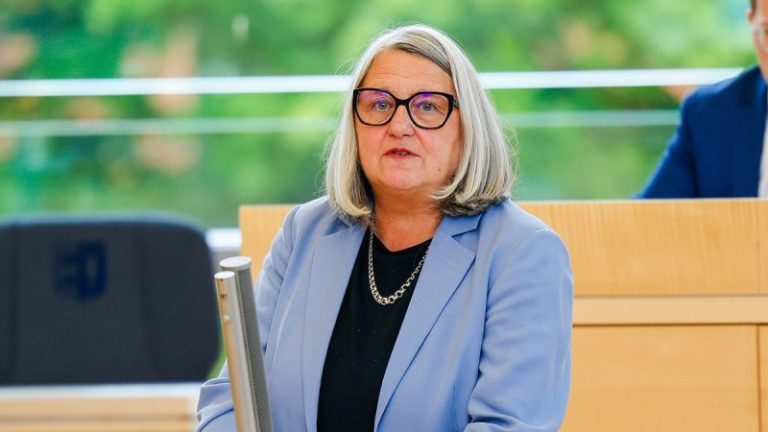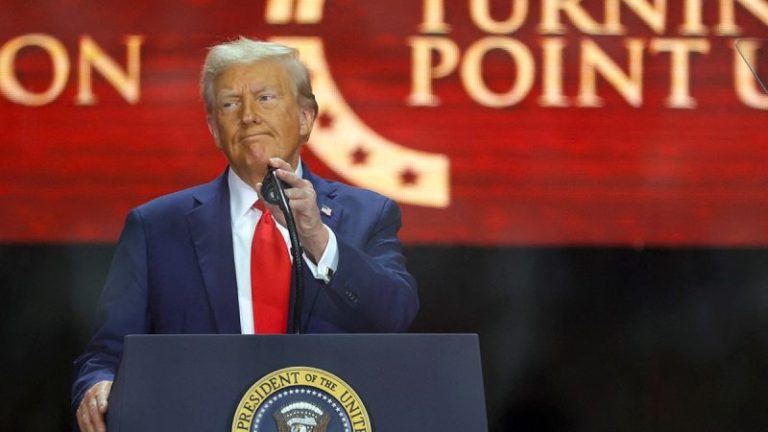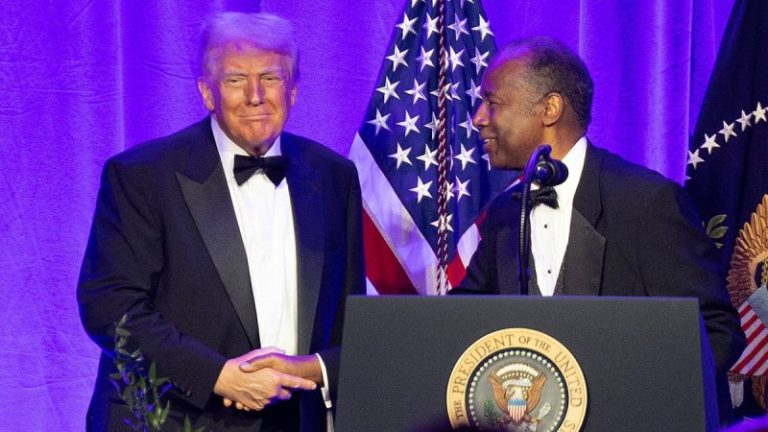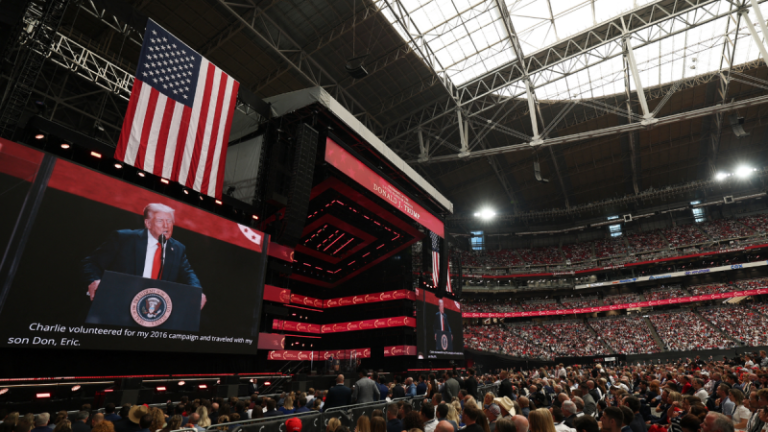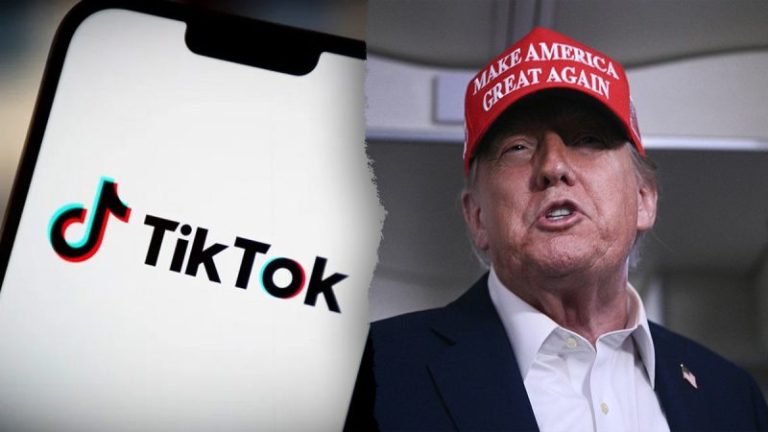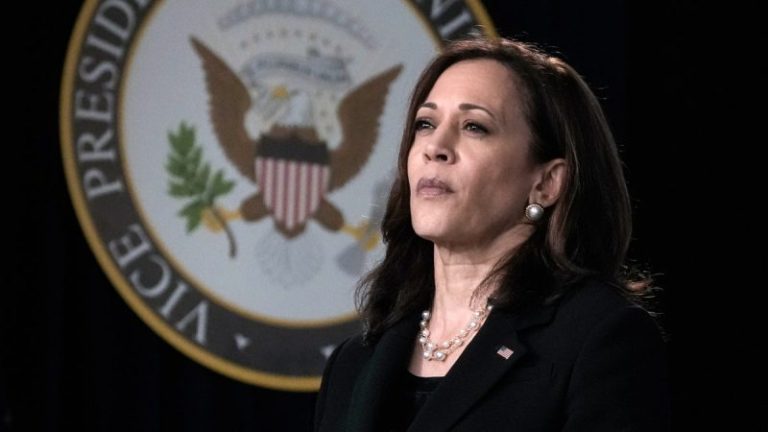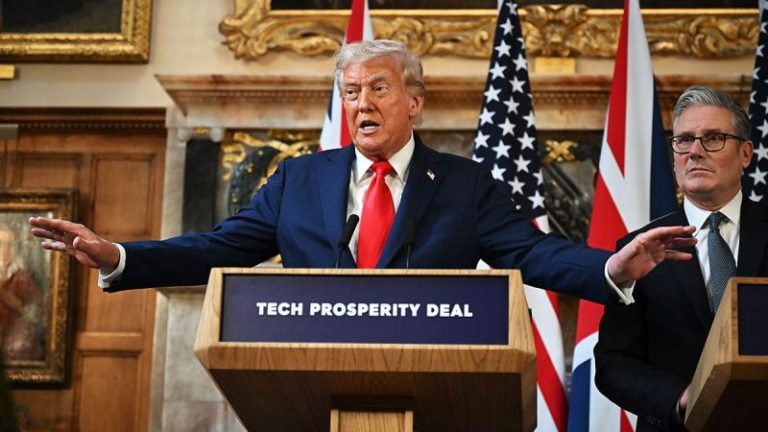A German shop owner in the northern city of Flensburg posted a sign on Wednesday that Jews are banned from entering his store, sparking outrage among state officials in Schleswig-Holstein.
Hans-Velten Reisch, the 60-year-old owner of the store that sells Gothic-Utensils and technical literature, posted a sign that reads, ‘Jews are banned from entering here! Nothing personal. No antisemitism. Just can’t stand you.’
Germany’s largest daily newspaper, Bild, reported on Thursday that Reisch defended his anti-Jewish sign. He told the paper that ‘I watch the news every evening. And when I saw what the Jews were doing in the Gaza Strip, I lost my temper and printed out the poster.’
Israel launched a defensive war against the Hamas terrorist movement in Gaza after Hamas slaughtered over 1,200 people on October 7, 2023, including American citizens.
Reisch said the police told him on Wednesday evening that he has to take down the poster.
The Schleswig-Holstein Minister of Culture Dorit Stenke and Gerhard Ulrich, the state’s controversial antisemitism commissioner, took Reisch to task for his reported antisemitism, issuing a joint statement on the state government’s website.
‘A sign that denies Jews access to a store is a frightening signal and an attack on the principles of our free coexistence,’ Stenke said in the statement. She continued, ‘We cannot allow such things to continue in our society and must take decisive action against it together. Antisemitism is a threat to our democracy and must not be tolerated in any form.’
Ulrich said, ‘We must stand together against every form of antisemitism,’ adding, ‘The fight against antisemitism is a special responsibility that we bear as Germans.’
The State Prosecutor launched an investigation against Reisch for incitement of hatred. Ulrich filed a criminal complaint for incitement of hatred against Reisch. A total of five criminal complaints were filed against Reisch, according to Bild.
‘Antisemitic hate speech like this not only hurts those affected, but also disrupts public peace. The Flensburg incident, with its contemptuous rhetoric, is fatally reminiscent of the Nazi hate speech against Jews,’ said Ulrich.
The outbreak of Jew-hatred in Flensburg is another example of the growing antisemitism in Schleswig-Holstein, the state officials said. In 2024, 588 antisemitic incidents were documented, an increase of 390 percent over 2023.
Ulrich, however, has faced accusations that he has contributed to anti-Jewish and anti-Israel sentiments when he previously served as the Protestant Church’s Bishop for northern Germany.
Rabbi Abraham Cooper, the associate dean of the Los Angeles-based Simon Wiesenthal Center, a Jewish human rights organization named after the legendary Nazi hunter, warned about Ulrich’s alleged antisemitism in December 2022. Cooper urged Schleswig-Holstein‘s government to dismiss Ulrich, claiming he ‘is unfit to denounce the very antisemitism that he unfortunately legitimized and helped to spread in the mainstream of German society.’
The former bishop has said, ‘The name ‘Israel’ is burdened with the horror and misery of this Middle East war.’ He also compared Israel’s security fence with the now-defunct Berlin Wall, suggesting Israel needs to dismantle its security fence.
The anti-terrorist fence has saved the lives of thousands of Israelis from Palestinian terrorists coming from the West Bank (also known as the biblical region of Judea and Samaria), according to counter-terrorism officials in Israel.

